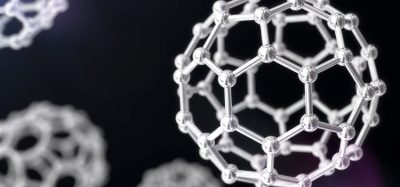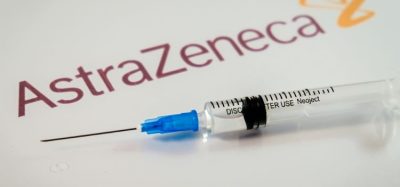Kineret® improves clinical outcomes in hospitalised patients with COVID-19 pneumonia
Posted: 5 May 2021 | Hannah Balfour (European Pharmaceutical Review) | No comments yet
Treating moderate to severe COVID-19 pneumonia patients with poor prognosis with Kineret® (anakinra) prevented death and progression to severe respiratory failure.


According to new data, the early and targeted use of Kineret® (anakinra) in hospitalised moderate to severe COVID-19 pneumonia patients with poor prognosis improved overall clinical outcomes by 64 percent. In the SAVE-MORE trial, anakinra plus standard-of-care (SOC) prevented either death or progression to severe respiratory failure, whilst also increasing the number of patients who were discharged from hospital with no evidence of COVID-19 infection.
The SAVE-MORE (suPAR-Guided Anakinra Treatment for Management of Severe Respiratory Failure by COVID-19, NCT04680949) randomised, controlled Phase III trial enrolled over 600 hospitalised patients at risk of severe respiratory failure, selected from a pool of 1,060 patients by the measurement of elevated suPAR (soluble urokinase plasminogen activator receptor), a plasma biomarker that reflects immune activation and has been previously associated with poor prognosis in a number of conditions. Anakinra was administered at a dose of 100mg/day for up to 10 days.
Analysis of the primary end point, the comparative 11-point World Health Organization (WHO) Clinical Progression ordinal Scale (CPS), at day 28 demonstrated significant improvement in patients receiving SOC treatment plus anakinra versus patients receiving SOC plus placebo. There were also reductions in the number of patients who died or who progressed to severe respiratory failure, as well as an increase in the number of patients who were discharged from hospital with no evidence of COVID-19 infection. These changes were apparent at day 14.
“This is the first study to specifically evaluate an at-risk patient population before admission to intensive care unit (ICU). The results provide a significant step forward in the search for additional treatment options to prevent progression to a more critical state,” said the study leader, President and Chairman of the Hellenic Institute for the Study of Sepsis (HISS) in Greece, Professor Evangelos Giamarellos-Bourboulis. HISS is a sponsor of the trial.
About Kineret® (anakinra)
Kineret is a interleukin-1 (IL-1) receptor antagonist that is approved in the US for reducing signs and symptoms and slowing the progression of structural damage in moderately to severely active rheumatoid arthritis (RA), in those aged 18 years plus who have failed one or more disease modifying antirheumatic drugs (DMARDs). It is also indicated for the treatment of neonatal-onset multi-system inflammatory disease (NOMID), a form of cryopyrin-associated periodic syndromes (CAPS), and for the treatment of Deficiency of Interleukin-1 Receptor Antagonist (DIRA).
In Europe, the drug is indicated in adults for the treatment of the signs and symptoms of RA in combination with methotrexate, with an inadequate response to methotrexate alone. In addition, Kineret is indicated in adults, adolescents, children and infants aged eight months and older with a body weight of 10kg or above for the treatment of CAPS, including NOMID or chronic infantile neurological, cutaneous and articular syndrome (CINCA), Muckle-Wells syndrome (MWS) and familial cold auto inflammatory syndrome (FCAS), among other diseases.
Related topics
Clinical Trials, Drug Development, Drug Safety, Immunotherapy, Research & Development (R&D), Therapeutics, Viruses









